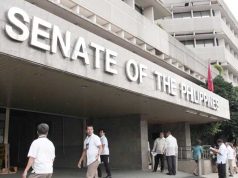BSP eases credit weight of banks’ MSME loans

THE CENTRAL BANK will ease the weight of loans extended by banks to small businesses until end-2021 to free up capital which can be used for lending amid the pandemic.
In Memorandum No. M-2020-034 signed April 28, BSP Governor Benjamin E. Diokno said banks’ exposure to qualified micro-, small-, and medium-sized enterprises (MSMEs) will only be assigned a credit risk weight of 50%, down from 75% previously.
“The foregoing provisions shall apply until Dec. 31, 2021,” Mr. Diokno said.
Under the Basel III Risk-Based Capital Adequacy Framework and the Basel 1.5 Risk-Based Capital Adequacy Framework, these loans include MSME exposures that meet the criteria of a qualified MSME portfolio as well as current MSME exposures that do not qualify as a highly diversified MSME portfolio.
“This move will free up some portion of banks’ capital which they can use for lending. This will also incentivize banks to lend to the MSME sector,” BSP Deputy Governor Chuchi G. Fonacier said in a text message.
“[This] would further encourage banks to book more MSME loans with less worries about effects on capitalization in view of relatively higher credit risks involved in lending to smaller companies,” Rizal Commercial Banking Corp. Chief Economist Michael L. Ricafort said in an e-mail.
The move follows the BSP’s move to include lenders’ credit to MSMEs in computing banks’ compliance with reserve requirements. This is also effective until the end of 2021.
Republic Act No. 9501 or the Magna Carta for Micro, Small and Medium Enterprises (MSMEs) requires banks to allot 8% of their total loanable funds as credit to micro and small enterprises.
On the other hand, two percent should be set aside for medium-sized businesses as the central bank seeks to boost credit to the sector which they can use for production and expansion.
Data from the Philippine Statistics Authority showed that MSMEs totaled almost one million in 2018, accounting for 99.52% of businesses.
These MSMEs generate 63% of the country’s total employment and are mostly engaged in wholesale and retail trade as well as repair of motor vehicles and motorcycle industries. MSMEs are seen to be among those hardest hit as the coronavirus disease 2019 outbreak continues to disrupt economic activity. — LWTN



